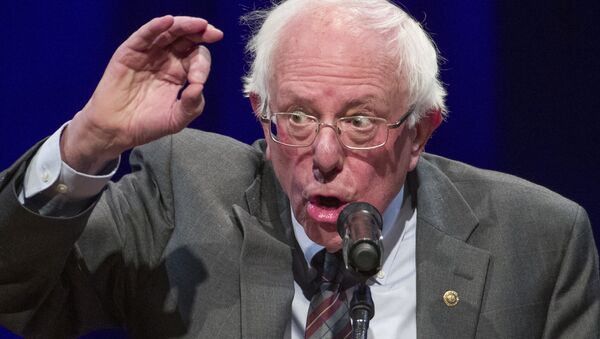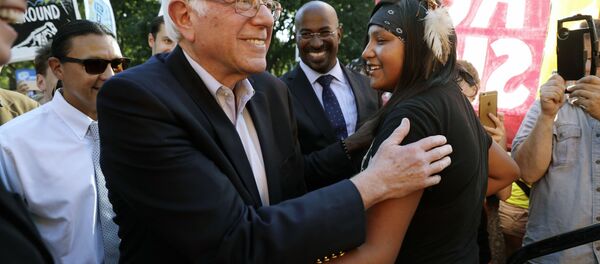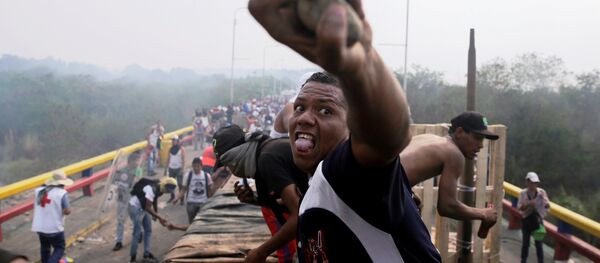Sputnik discussed the statements Sanders made last week and the situation in Venezuela with Stephen Morris, professor of political science and international relations at Middle Tennessee State University.
Sputnik: [Bernie Sanders] did come out and say that as for the Venezuelan situation, they should really go back to the polls and let the people decide, rather than intervention from any kind of force or administration. Since then, he’s obviously faced criticism; how can this shift and impact his voter base? It’s sort of a mirror image in many ways, I’m thinking [of] President Trump saying many things before he became president, and then he becomes the president and his hands are tied. Are were looking at the same thing with the Democrats and Bernie Sanders? He’s got a very strong following, Mr. Sanders, but now he seems to be pushed in a direction, doesn’t he?
Stephen Morris: He certainly does, and he was one of the few voices within the political circles that were supporting non-intervention, peaceful resolution, and not jumping on by accepting the Trump narrative on Venezuela. During the Ramos interview he mentioned non-intervention and peaceful resolution, which made sense. Yesterday his comments were not necessarily to recognise Guaido, I mean that’s what he was criticised for in Florida, for not recognising Guaido. He hasn’t gone that far as to recognise Guaido, he still does not support US military intervention or supporting Guaido.
In my view, he still supports a peaceful resolution to this, even though it’s understandable that he would condemn violence on either side. Certainly, he changed his tune under pressure from mainly the mainstream of the Democratic Party and now, as I mentioned, he’s facing criticism from the left-wing of the political party, from the Democratic Socialists within this country. A lot of people are upset that he made the comments that he did yesterday [Saturday], so he’s been pushed from both sides.
READ MORE: Bernie Sanders Refuses to Recognise Guaido as Venezuela's Interim President
Sputnik: Some of the European Union countries are also not coming out in favour of Guaido, although the European Union has. So there’re different points of view. Why do you think the Latin American countries are so in favour of Guaido taking power? Is that because they’re on the front line in terms of immigration, of Venezuelans leaving the country in vast groups and putting pressure on their individual economies, or is it not as simple as that?
The immigration, yes, that's and issue and that's a problem, but again, immigration rarely seems to be enough to trigger intervention in the internal affairs of another country. It seems to be more than that, and again, the fact that Mexico and Uruguay and may of the countries of world continue to support President Maduro indicates that, yes, there are problems in Venezuela and there are problems both politically and economically, but that does not justify violating international law in order to try to fix it.
READ MORE: 'Don't Invade': Pink Floyd's Waters Denounces Trump, Sanders Over Venezuela
Sputnik: What can we expect in the coming days and weeks with regard to this general malaise that’s within the country? In many ways it is very fascinating to see how this is going to play out, but there's obviously a lot of concerns as well; how do you see the next days and weeks playing out?
Stephen Morris: Well it’s hard to see that things will ease up, that the tensions will ease up; this may just be the beginning. Guaido and the US have ruled out negotiations except with the military. The United States historically is not a country that tends to back down once it’s made up its mind that it wants to get rid of somebody. There’s kind of a Messianic dimension to US foreign policy, the battle between good and evil; so the more that they invest in this, the more they’re going to continue to push forward.
The views and opinions expressed in this article are solely those of the speaker and do not necessarily reflect Sputnik's position.





